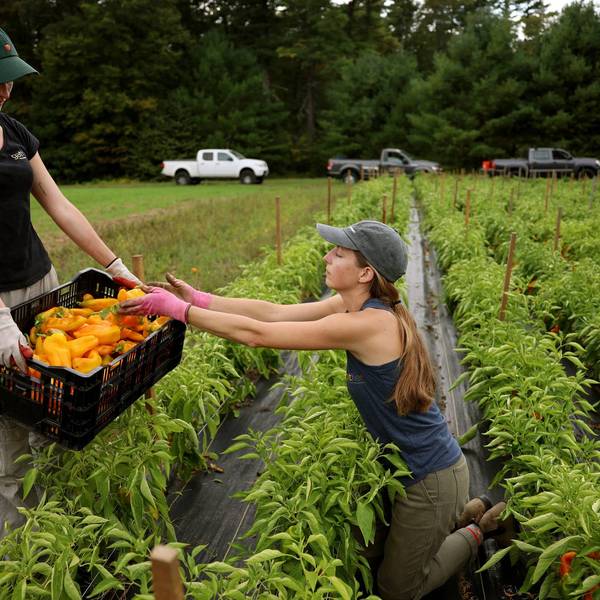What's an advocate of clear GMO labeling to do now that President Barack Obama has signed into law the food industry-supported measure dubbed the DARK Act?
One option, according to the Organic Consumers Association (OCA), is to join roughly half a million people who've said they will boycott brands that won't label their products--in a clear way for everyone to see--that have been produced with genetic engineering.
When Obama on Friday signed the measure "paid for and written by corporations who clearly have something to hide," said Ronnie Cummins, international director of OCA, the president "succumbed to industry pressure to betray the 90 percent of Americans who want GMOs labeled."
Congress passed the measure, which supercedes Vermont's historic labeling law, last month, and now, as the Associated Press reports, the "Agriculture Department has two years to write the rules."
Here's where the controversy lies: While called a GMO labeling bill--and though the White House says it "will provide new opportunities for consumers to have access to information about their food"--the organization Just Label It says it "falls short of what consumers rightly expect--a simple at-a-glance GMO disclosure on the package," and "contains loopholes that could limit the number of products that must carry a GMO disclosure."
In fact, says the Center for Food Safety, which opposed the measure, it's discriminatory, as it "allows companies and producers to use QR codes, 1-800 numbers, and other difficult-to-access technology."
Noting the impact of using QR electronic barcodes, OCA's Cummins says that "more than a third of Americans can't even read [them] because they don't have smart phones or reliable internet service." As such, he says, it "allows corporations to hide information about GMOs."
"Passage of this bill leaves consumers with no other recourse but to boycott any brand or product that is not labeled either USDA organic, 100-percent grass-fed, or non-GMO. Consumers who want to boycott those brands that have fought to keep labels off of their products, or any brands that refuse to label, can join the nearly half a million consumers who have already downloaded our boycott app," Cummins added in his press statement.
OCA is also calling on consumers to support the so-called Monsanto Tribunal, a two-day event that will take place in The Hague in October in which a panel of international judges will hear will hear testimony from citizens across the globe who feel they've been harmed by the company's products. A binding decision will not be produced by the tribunal; rather, the judges will issue opinions on six questions, including whether Monsanto violated the right to a healthy environment and the right to food.



